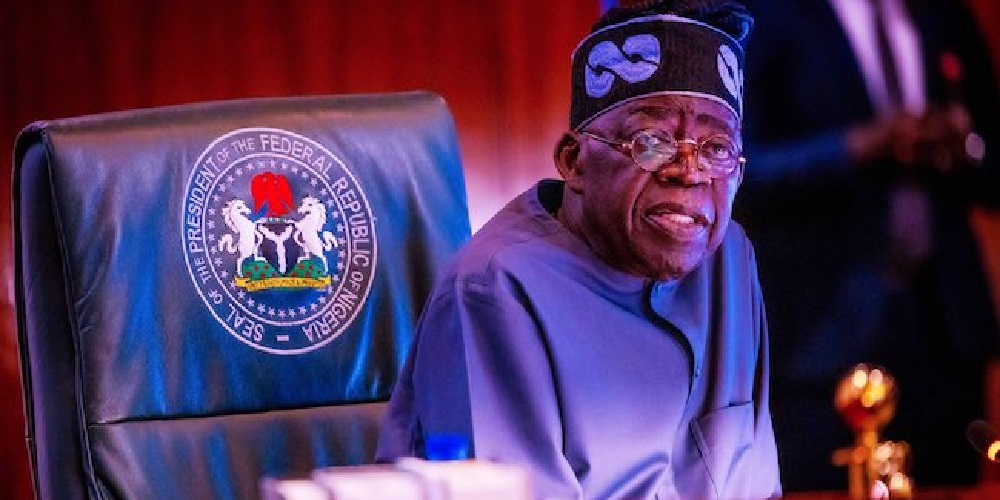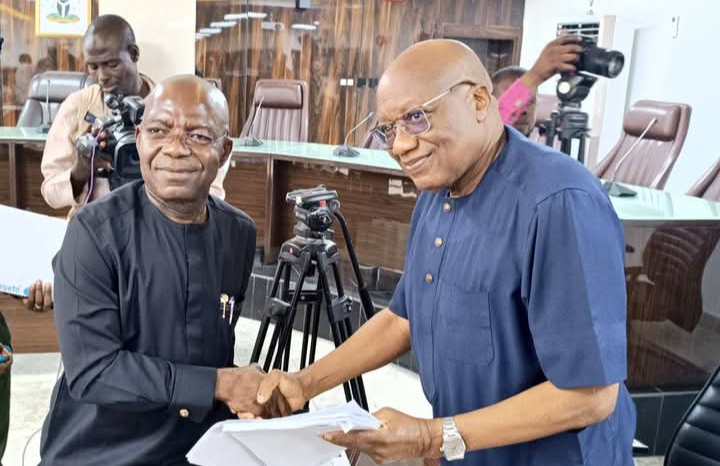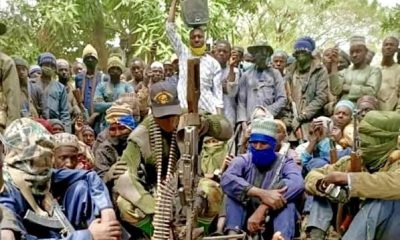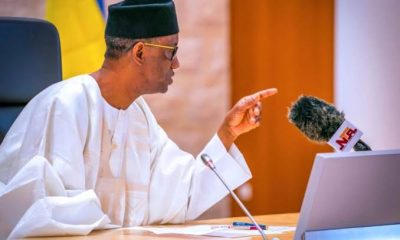News
Nigeria Spent Over N1Billion To Purchase Dollars For Tinubu’s Trip To Ethiopia, N650Million On Honorarium In 21 Days

An investigation by SaharaReporters, utilising the public payments portal, reveals that President Bola Tinubu’s trip to Addis Ababa, Ethiopia, for the African Union summit came with a hefty price tag of N1.041 billion, sparking concerns over excessive spending on international travel.
The trip was made in February 2024.
Records show that on February 9, 2024, $692,265 was purchased with over N1.041 billion “for Mr President’s trip to Ethiopia”.
This development comes amid calls for a reduction in the cost of governance.
In a related development, between February 24 and March 15, 2024, the Presidency recorded N650 million for “presidential honorarium and transportation”.
This means that in 21 days, the Presidential honorarium cost the country N650 million.
An honorarium is a payment made as a gesture of appreciation for services rendered, where no fee is legally or customarily expected. It’s a voluntary expression of gratitude, rather than a mandatory compensation.
In January 2024, it was reported that the President cut his travel delegations by 60 percent to reduce the cost of governance, so it remains unclear how much the country would have incurred for the Ethiopian trip assuming that the delegation had not been reduced by 40 percent.
SaharaReporters earlier noted how the administration of Tinubu spent N473 million on the First Lady Oluremi Tinubu’s to Mozambique, United Kingdom and Ethiopia.
The country’s low revenue generation has sparked widespread concern and scrutiny, with many calling for improved fiscal management and strategies to boost economic growth.
The organised labour recently demanded an increase in the minimum wage, a development that has continued to trigger disagreements in the country with the government saying it is unable to pay due to paucity of funds.
SaharaReporters has exposed the Tinubu administration’s non-compliance with legal requirements by failing to publish quarterly budget performance reports, thereby denying citizens the right to access crucial information on government expenditures and undermining transparency and accountability in public financial management.
Credit/ sahara reporter
News
SAD! APC lawmaker dies while asleep

The lawmaker representing Kaura Namoda South Constituency in the Zamfara State House of Assembly, Aminu Ibrahim Kasuwar-Daji, has died.
It was gathered that the lawmaker passed on in his sleep during the early hours of Wednesday.
Aminu Ibrahim Kasuwar-Daji’s sudden death came as a shock to many in the state, especially his colleagues and political associates.
The All Progressives Congress (APC) in Zamfara, the party under which he was elected, expressed deep sorrow over his passage.
Members of the party, including the State Working Committee and other supporters, described his death as a great loss.
They said he was known for his dedication and honesty in serving his people.
His family, community members in Kaura Namoda South, and fellow lawmakers have been thrown into mourning as preparations for his burial began.
According to Islamic rites, he was buried today at 3:00 pm in his hometown of Kasuwar-Daji, located in the Kaura Namoda Local Government Area.
Many in the state have continued to express grief as they remember the role he played in representing the people and contributing to the work of the state assembly.
News
Just in: Sam Olumekun takes over as INEC’s Acting Chairman

Mr. Sam Olumekun has taken over at the Independent National Electoral Commission (INEC) as Acting Chairman.
Olumekun is INEC’s National Commissioner in charge of Information and Voter Education.
He performed his first duties today, receiving a high-level delegation of the Labour Party (LP) at the Commission’s headquarters in Abuja with other National Commissioners in attendance.
The delegation was led by Abia State Governor Dr. Alex Otti, who visited the Commission to discuss key developments within the Labour Party.
It was gathered that both parties engaged in discussions centered on enhancing collaboration and reinforcing democratic values.
During the visit, Governor Otti formally presented a Certified True Copy of the recent Supreme Court judgment concerning the party’s leadership.
He noted that the meeting was aimed at fostering clarity, mutual understanding, and institutional alignment regarding the Labour Party’s current structure.
Mr. Olumekun, the Acting INEC Chairman, reaffirmed the Commission’s unwavering commitment to neutrality, transparency, and the rule of law in the discharge of its constitutional responsibilities.
Recall that a viral WhatsApp message had indicated that Prof. Mahmood was sacked by President Bola Tinubu and replaced with one Prof. Bashiru Olamilekan.
“INEC Chairman Prof. Mahmud Yakubu has been replaced with Prof. Bashiru Olamilekan by President Tinubu,” the message, which had no attribution, read. However, both INEC and the Presidency debunked the widespread report.
Yakubu, who is rounding off his second tenure in office, is expected to exit the system towards the end of this year.
The process of appointing an INEC chairman is the President nominating a candidate and forwarding his particulars to the Department of State Services (DSS) for profiling.
After such screening, the President, thereafter, takes the name to the National Council of State for its advisory review.
Based on the outcome, the President sends the name to the Senate for screening and confirmation.
News
Crude oil prices slide further, now selling below $57

Crude oil prices have dropped below $57, following a previous rate of $59.78.
This decline coincides with the imposition of tariffs on several countries by US President Donald Trump.
A report from West Texas Intermediate attributes this price slump to consistent 6% reductions observed last week.
JPMorgan Chase & Co has warned that these tariffs could likely push both the US and global economies into a recession this year.
The financial institution explained that the tariffs, set to take effect this week, are expected to have widespread economic repercussions.
Market analysts and the business community have expressed concerns about the negative implications of these measures, predicting a slowdown in economic activities and a subsequent decline in oil demand.
-

 News13 hours ago
News13 hours agoBanditry:” I was chained for 32days while in their den, killed my wife as I watch-Nat’l Assembly DD narrates experience
-

 News8 hours ago
News8 hours agoPolice Inspector Slumps, Dies While Celebrating After Arsenal Wallop Real Madrid 3-0
-

 News14 hours ago
News14 hours agoUS revokes more than 500 foreign student visas
-

 News20 hours ago
News20 hours agoBandits have seized control of 64 communities in Plateau – Gov Muftwang
-

 News15 hours ago
News15 hours agoIbas picks administrators for 23 Rivers LGs(SEE list)
-

 Economy20 hours ago
Economy20 hours agoMobile Money transactions hit $1.68trn in one year
-

 News21 hours ago
News21 hours agoRibadu warns against ransom payment to terrorists, kidnappers, others
-

 News7 hours ago
News7 hours agoSAD! APC lawmaker dies while asleep





